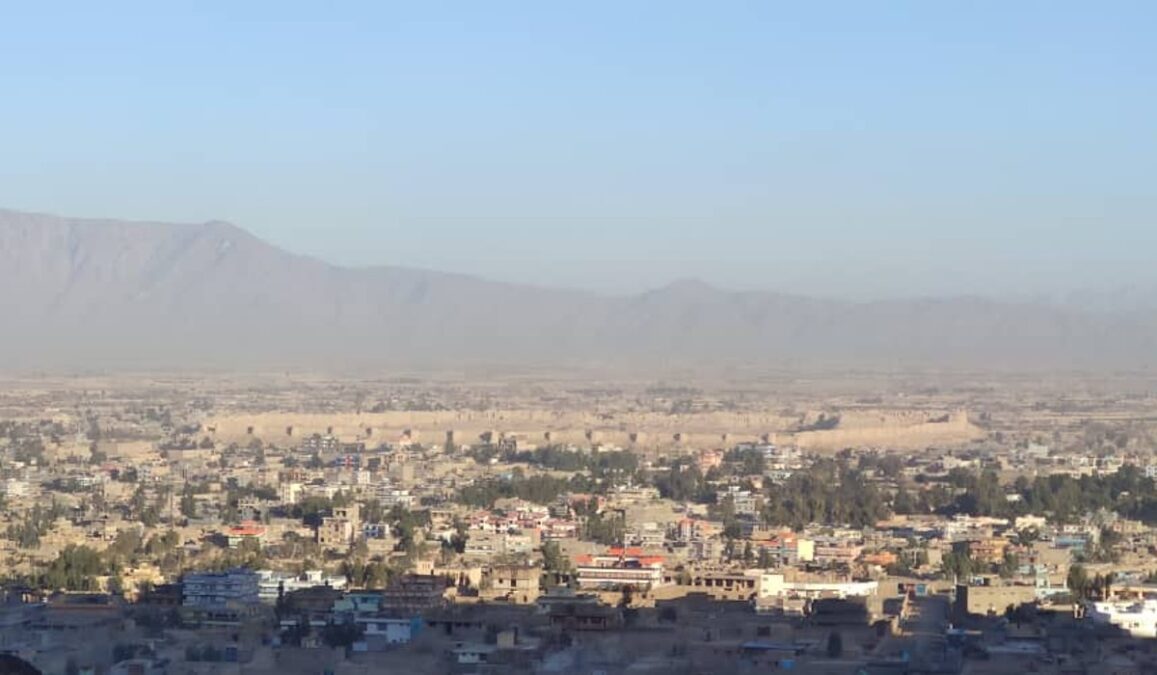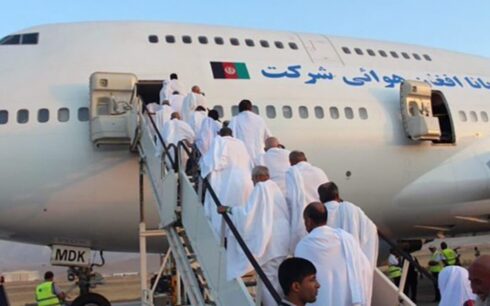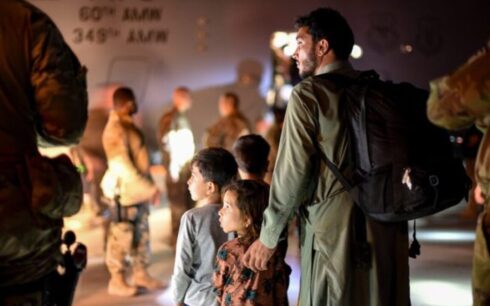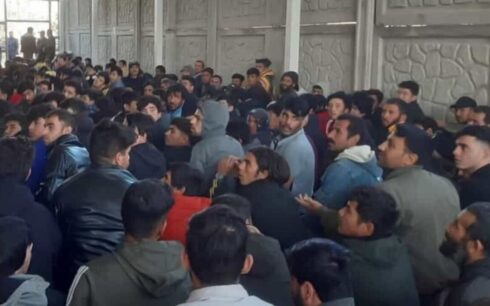Findings of a study indicate that Afghanistan would move towards peace and stability once a peace initiative is revived and an inclusive government is formed.
According to the findings of the Contact Group for Peace and New Generation and Youths Peace Jirga study, the Afghan Peace Process in Doha failed due to the marginalization of the former government and other influential stakeholders.
The research project, entitled “Conflict and Reconciliation of Afghanistan; A Case Study of Youths and New Generation Demands” was carried out last year and the findings were released on Sunday.
According to the findings, the peace process also failed due to the miscalculation of the former government; limited access to peace information; process mismanagement; a lack of authority on the part of the negotiating team; the absence of honest cooperation by international and regional players; the stubbornness and inflexibility of the Taliban and the refusal by them to form a transitional and consensual interim government.
The findings suggest that the revival of peace talks and the formation of an inclusive political system, formed via a political agreement and based on the votes of the people, could bring an end to the long-term conflict that has gripped the country for decades.
“The war and conflicts must be dismantled and the political campaign that forms the basis of a political society must be carried out in a peaceful and non-violent approach in the country,” the study found.
“By resolving internal issues and creating a strong national government, the ground for international legitimacy and friendly relations with neighboring countries, the region, and the world should be provided,” the findings suggest.
Meanwhile, the research paper also states that the future of peace in Afghanistan needs a “makeover of peacemakers that goes beyond the traditional activities, frameworks, and peacemakers that created soulless diplomacy and that all segments of society must contribute to the establishment of peace”.
“The middle segment of society (the new generation, youths, and emerging figures) needs to have a more prominent role than the top leaders (authoritarian and conflicting sides),” the report stated.
It also noted that the role of the new generation must not include only the resolving of urgent conflict issues, but must also include “the concerns that may lead to a reversion to armed conflict and hostile interactions.”
In order to overcome the current situation in Afghanistan, the study concluded:
1- The Taliban must take “practical, honest and committed” steps to resolving the conflicts via political negotiation and agreement, begin new peace talks to reach an agreement on a comprehensive roadmap, and agreement on drafting and approving a new constitution for all Afghan sides for a permanent end to war and for a stable political future.
2- The Taliban and other Afghan sides must avoid selfishness and monopoly in power, be flexible and accountable, to reach a big political agreement.
3- All political sides must reach an agreement and commit to non-violence.
4- Defining political structure and governance, laying the groundwork, and defining the meaningful engagement of all ethnic groups in political power and government decisions based on approval and implementation of just laws.
5- Maintaining and implementing the process of democracy and gaining political power through elections, elected government – having both national and religious legitimacy – elected and accountable leaders, defining pillars of government and separation of powers, holding fair and general elections, and referring to the votes and demands of the nation on major and crucial issues of the country.
6- Defining and respecting the national and common values, compatibility, respecting all ethnic groups and movements for each other’s intellectual, political, cultural, and social values and diversities, and putting efforts into a stable and prosperous Afghanistan.
7- The brotherhood and coexistence of the religious followers in Afghanistan are unparalleled in the region and are inseparable. Therefore, along with the Sunni and Hanafi religions, the Shiite and Jafari religions must be preserved and respected as the official religions of the country.
8- Preservation of moderation, abandoning coercion, and preventing excesses in religious affairs.
9- Preserving and developing freedom of expression, the press, and the media, the right to access information, social, civil, and political freedoms, and the right to peaceful protest for all Afghan citizens within the framework of just laws.
10- Protecting and supporting women’s fundamental rights and freedoms (right to education, study, work, meaningful engagement, and presence in political, civil, social, economic, cultural, and military fields).
11- Meaningful presence and engagement of the new generation and youths as an influential side in the national decision-making process.
The report emphasized the need for the participation of elites of the new generation and youths of Afghanistan in all political aspects of society and noted they “should put together in achieving political stability and lasting peace in the country.”
The findings noted that the new generation and youths of Afghanistan have not played an active and meaningful role in political and military decisions in the past two decades.
12- Political engagement and participation of the New Generation and Youths in national events and decisions, international forums, and platforms on Afghanistan issues other than the three axes involved in political decisions.
13- Protecting the rights and addressing and solving the problems of war victims, heirs of martyrs, and people with disabilities that were caused by decades of war in Afghanistan.
14- Establishing and creating committed, non-political, and non-affiliated Defense and Security Forces, Intelligence and Information Organizations, and Professional, Committed Independent, and Non-Political Police.
15- Avoiding restrictions and banning cultural and artistic activities, and protecting Afghanistan’s cultural, artistic, and ancient heritage.
16- Maintaining, continuing, developing, and establishing friendly and strategic relations with neighboring countries, the region, and the world based on national interests.
17- Avoid sensitivity in foreign relations and maintain neutrality in conflicts, negative competitions, and military and intelligence wars in the region and the world.
18- Strong support of the United Nations, especially the Security Council and other international organizations from the people, women, the new generation, and youths of Afghanistan.
19- The continuation of global financial support, and the serious and honest cooperation of the international community with the people of Afghanistan in achieving lasting peace and stability.
The findings of the study outlined two scenarios for the current situation in Afghanistan. First, if the Taliban wants Afghanistan to reach lasting peace and stability, a competent commission or council must be formed to continue peace talks with other Afghan sides.
“The Taliban side, in consultation with other influential movements, women, the New Generation and Youths should take the initiative of national reconciliation, peace and the formation of an inclusive government,” the report stated.
The Taliban must observe citizen and civil rights, women’s rights, and freedom of expression for the people of Afghanistan, and set the ground for greater national cohesion and solidarity.
“Coercion in religious affairs must be terminated and they should act according to the demands of international politics. They should observe international treaties, conventions, and accords regarding governance. The Islamic Movement of Taliban must be committed by the rule of elective and non-violence political game,” the report stated.
In addition, it said the Taliban must establish a system based on the votes of the people, and start working on the codification of the new constitution in consultation with all movements.
“If this initiative is not put into practice, Afghanistan will once again face a serious crisis.”
The interviewees in the research said that if the people of Afghanistan desire stability and peace in the country, “the remaining peace process needs to be restarted more efficiently. The peace issue is still ongoing and we need to pursue peace-seeking as a national claim. If the peace process, especially political peace, is not completed, it will not lead to stability.”
The second scenario, according to the interviewees, is if the Taliban presume that they have conquered Afghanistan by force, and are therefore free to do as they wish, such assumptions would not lead to lasting peace and stability.
“History has taught us that ruling by force in Afghanistan would not last, as the ruling of communists and the republic did not work, and the Americans and NATO by having tremendous facilities and power faced challenges,” interviewees said.
The interviewees added that gaining power and transferring power through war have brought devastation and destruction to the people and the country. The Taliban are now in a distinctive position.
“People want jobs, food, security, justice, participation, development, and welfare services from them. On the other hand, the Taliban are not the only ones in Afghanistan,” they said.





